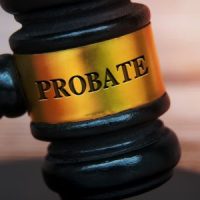What Does A Probate Court Actually Do?

We have often written about probate court, why some people may want to avoid it, and about getting an attorney to help you in probate court. But what is probate court, what does it do, and is it even necessary?
Changing of Ownership of Assets
In simplest terms, the probate court oversees the transition of a deceased person’s assets, to ensure that they are transferred into whoever’s name those assets are supposed to be transferred to.
The probate court can decide on contested issues, but also issue court orders formalizing simpler things that need to be finalized in order for property to pass onto other people.
Estate Planning Matters
How much the probate court needs to do often depends on someone’s estate plan; a comprehensive estate plan may not need any probate at all, someone with a will may need the probate court simply to formalize the wishes in the will, and someone with no estate plan at all may need the probate court to do absolutely everything to pass all property onto whenever state law says it gets passed on to.
Just having a will doesn’t avoid probate. In fact, a will has to be filed in the probate court, and a court needs to officially validate the will, giving anybody who wants to challenge its validity, the chance to do so and have their objections heard.
Tying Up Loose Ownership Ends
One thing probate courts do is pass on ownership to other people. Just because you leave your home to someone in your will doesn’t change the title to the property automatically when you pass. There must be an establishment of a homestead, and something in the public records establishing who the new owner is.
If you have property in a storage unit that is left to someone in your will, the storage company isn’t going to let your heirs just open your unit; it will take the probate court to require that to happen, to allow the property to be taken by whomever you (or state law) designate.
Creditor and Debtor Claims
Creditors also can make claims on property that you leave to beneficiaries, and the validity of those claims need to be determined by the probate court. Your beneficiaries can challenge the rights of creditors to leave property to them.
In some cases, the deceased was owed money by other people. That debt doesn’t go away; it is something the estate is entitled to collect. The collection of monies owed to a deceased, are done through the probate court and the probate process.
Children
The probate court even deals with minor children; in some cases, the court may need to determine the best place for the minor children to live. This is especially true when multiple parties are arguing over custody of a minor child.
Questions about what happens in probate court? Ask us for help. Call the West Palm Beach probate lawyers at The Law Offices of Larry E. Bray today for help with any probate problems you may have.
Sources:
help.flcourts.gov/Other-Resources/Probate
floridabar.org/public/consumer/pamphlet026/

